10 characters who did the EXACT OPPOSITE of what we would have done
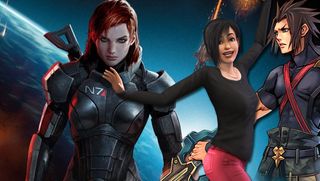
Don't do it!
There's nothing that draws a player into a game like feeling they have some say in the actions of the characters they are controlling--it's why games like Mass Effect and The Walking Dead are so emotionally powerful. Instead of simply being along for the ride, it makes players feel like the character's choices largely reflect what, given the opportunity, they would choose. They go from casual observers to brain impulse.
That is why nothing throws a player out of a game like feeling the character has acted completely out of line with what they would have done. Here are ten examples that epitomize that problem, characters that betray the player's sense of control in ways that nearly--or outright--shatter the gaming experience.
Also, be aware that there are a few spoilers late in the article, though we made sure to mark them so you wouldn't stumble on them unprepared and unaware.
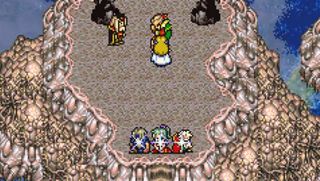
The cast of Final Fantasy VI believes the villain over their own party member
In Final Fantasy VI, ex-Imperial General Celes Chere is a critical member of the player party, and while the party knows of her past, they have never had a reason to question her loyalty. Then, they visit the Magitek Research Facility, and Cid asks if she managed to "work [her] way in amongst those rebels as a spy." That is almost forgivable (a prominent Imperial General joining a rebel group? Deets please), but Locke and company only really latch onto the idea when Kefka comes on the scene, congratulating her for her work.
Celes begs Locke to believe she isn't a traitor, but the company isnt convinced. Nevermind that Kefka is a villainous, psychotic trickster--he must be telling the truth, right? The speed with which the party comes to doubt Celes is surprising enough to throw the player completely out of the game, leaving them frustrated by the characters naivet. Hasn't anyone ever told them not to trust murderous clowns?
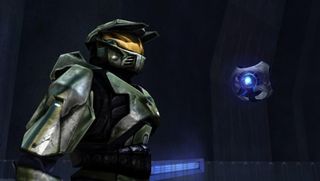
Master Chief follows Guilty Spark without a second thought
In the original Halo, after escaping the first swarm of Flood, Master Chief meets Guilty Spark--a Monitor that pops up out of the blue saying he can help destroy the nasty beasts. As vague as this suggestion seems, Master Chief goes along with it, helping Guilty Spark put together the mechanism that will destroy the Flood. Master Chief only briefly (i.e. for a split second while approaching the Core) stops to wonder how exactly it's going to do that, and never asks Guilty Spark for details.
Cortana intercepts them, berating Master Chief for his lapse in critical thinking and revealing the truth: the Monitors plan would destroy all organic life in the galaxy. To many players, this moment isnt as shocking as the story wants it to be, because its obvious that Guilty Spark is up to something. In fact, when Master Chief turns on Guilty Spark for answers, the android confirms what Cortana said and claims that Master Chief must have known because, "How couldn't you?" Good question, Guilty Spark. Good question...
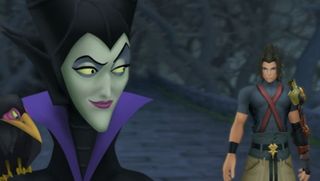
Terra turns to the Dark Side by accident
In Kingdom Hearts Birth by Sleep, Terra is the semi-tragic character that Riku represents in the main storyline: a misguided soul who wants to do good, but ends up falling in line with the bad guys. However, unlike Riku, Terra stumbles into helping villains completely by mistake, and some have a hard time buying it.
Terra's first big offense--stealing Aurora's heart--isn't really his fault, but one would hope he would learn from the incident. Instead, he ends up assisting more than his fair share of the villains from them on, to the point that he is so tainted by darkness that his body is overtaken by the Big Bad. Part of the issue is that Terra doesn't have the same context as the player, who has presumably seen some Disney movies and knows who the villains are. Terras ignorance can become a major frustration, as the player has no means of stopping him from assisting the bad guys--and when the people hes helping have sharp teeth, hooks for hands, and practice black magic, some frustration is warranted.
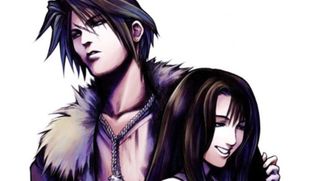
Squall Leonhart goes from zero to CRAZY IN LOVE with the change of a disc
While playing Final Fantasy VIII, its hard to miss that the focus of the story is supposed to be on the romance: the lovey-dovey clips in the cinematic opening, which are about as subtle as a sledgehammer, are proof enough of that. However, the game seems to forget the two leads are supposed to end up together: Squall is indifferent to Rinoa through most of the first two disks, treating her like a brat and only helping her at the behest of others (for instance, he was the only one willing to let Rinoa fall to her death), and at best becomes more tolerant of her as the game goes on.
Then disk 3 starts, and hes suddenly insane with love for her, weeping at her bedside, deserting SeeD to carry her comatose body across the country, and shooting himself to the moon on the slim chance they'll find a cure for her there. Keep in mind that the difference between Squall abandoning Rinoa to her death and throwing himself screaming across her hospital bed is fifteen minutes.
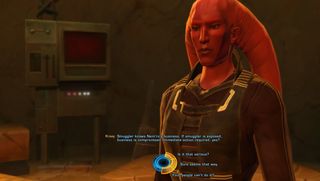
Star Wars the Old Republic decides what you meant by that
SWTOR's a bit of an oddball in this group, given that the player character will rarely make a decision without player input. However, it does assign motivations for the choices that the character makes that aren't always in line with the player's intent.
Here's an example: the character is congratulated by an NPC for a task well done. The player chooses the response, "Just doing my job," but when the character actually speaks, s/he says, "Anything to further the glory of the Empire!" Theres no consideration for if mindless nationalism would be in-character for the personality the player is trying to build. It's not surprising that parodies have begun cropping up in regard to this mechanic, and rightly so--what's the good in allowing for player decision-making when the actual motivation behind their decisions is ignored? We find this lack of choice disturbing.
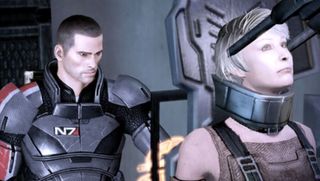
Commander Shepard commits mass genocide
In the Mass Effect 2 DLC "The Arrival," a group called The Project claims to have foreseen the Reapers using a powerful mass relay to invade the galaxy. The only way to stop it is to steer an asteroid into the relay, destroying it and obliterating 300,000 Batarians living nearby. Shepard is given a choice: send the asteroid into the relay and escape on the Normandy, or... send the asteroid into the relay, inform the colonists of their upcoming demise, and then escape on the Normandy. Wow, harsh.
The player has no say in Shepard choosing to murder hundreds of thousands of sentient beings, and for a game that lets the player decide everything from the shape of Shepard's nose to the comrades s/he recruits, that seems out of left field. Developers have responded to questions about the DLC, saying that the destruction of the relay was critical to future plot developments. But don't worry, you'll still get to decide which character Shepard climbs into bed with down to conversation points, so it's not all bad.

Sims never do exactly what you command
Riddle me this: how many times have you been hungry and had to go to the bathroom? Follow-up question: when that happened, did you make yourself food, drop it, soil yourself, then stand crying in your own filth and shame? We're guessing you didn't--but, for some reason, that happens in The Sims all the time.
In The Sims, when you as a player take a break from having your alter-ego and celebrity crush replica get naughty in the hot tub (don't lie) to start improving the lives of your Sims, it becomes obvious how much they don't want to do what you tell them. You could be trying to get them in a shower because they haven't washed in two weeks, and they will find some way to overpower your directive while shrieking that they need some TV time stat! Left to their own devices, they wallow in filth, weeping that their unforgiving god has forsaken them when all you want is to make the baby stop crying before social services shows up. Enough of that, and making them go swimming and stealing the ladder starts to look like a sound strategy.
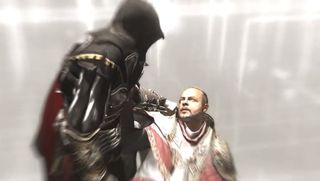
Ezio Auditore lets the big bad go, just because
Over the course of Assassin's Creed II, Ezio Auditore spends two decades assassinating members of the organization who murdered his father and brothers. Eventually, he comes face-to-face with Rodrigo Borgia, the mastermind behind their murders. (He also became pope to enslave humanity and conquer God, and that's not so good either.) Then, after stabbing, beating, and nearly choking Rodrigo to death, Ezio says that killing the man won't bring his family back and decides he's not going to go through with it. No, really.
This move is, to say the least, jarring. The player has spent most of the game killing mooks indiscriminately, and Ezios life goal has always been to bring down the men who killed his family. His decision to spare Rodrigo comes out of literally nowhere, and has severe consequences with the Borgia obliterating the Auditore villa and murdering Ezio's beloved uncle. That effectively sets up the plot of Assassin's Creed: Brotherhood, which is probably the best explanation we'll ever get for Ezio's cold feet.
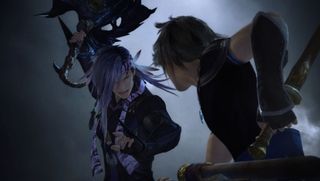
Noel does way too much for a guy he hates *SPOILERS*
Note: There are spoilers for the end of Final Fantasy XIII-2 ahead. Turn back lest ye be spoiled!
For those who never slogged through Final Fantasy XIII-2, a little background on Noel: he's from an apocalyptic wasteland 700 years in FFXIII's future, and goes back in time so he and Serah can "fix" the broken timeline. It is also completely his fault when the world is destroyed.
The player is told that he's friends with the main villain, Caius; we say "told" because they never behave in a friendly manner. Caius also wants to destroy the world, and is effectively immortal--his heart belongs to the Goddess (which can be taken in battle), and is the only thing keeping chaos from consuming the world. Noel, frustratingly, is unable to put those clues together the way the player does. Even when the player is given the option to kill Caius and take the heart, Noel refuses to go through with it. So when Caius predictably destroys it and brings about the apocalypse (and, spoiler, kills Serah), the player feels cheated: we could have saved the world, but we were stuck with a character that stupidly refused to follow through.
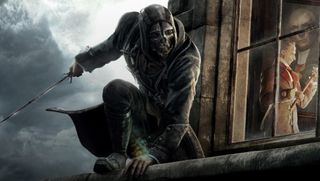
Corvo falls for the most transparent trap ever *SPOILERS*
Note: There are spoilers for the end of Dishonored ahead. Turn back lest yet be spoiled!
In Dishonored, you play as Corvo Attano, master assassin out to take revenge against those who framed you for murder and kidnapping. Given that he is supposedly one of the greatest assassins in the world, you would expect Corvo to notice that he is about to be poisoned by the least subtle traitors in existence--however, in a freak bout of plot necessity, it goes right over his head.
It's possible that Corvo is simply not as genre-savvy as the player; he wouldn't notice that he has just killed the supposed final villain with no ending in sight, and he doesn't have access to the game menu, which notes that the Empress' real killer is still at large. So when Corvo is handed a glass to toast his success, he doesn't have the same alarm bells going off in his head as the player does. That is the entire problem: the player can see this betrayal coming a mile away, but they still have to have Corvo drink the poison. Dishonor on you, Corvo, for making us do that.
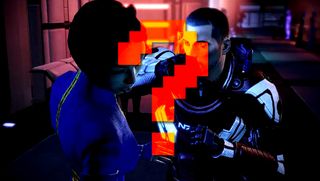
Did you do that?
While these ten are some of the most egregious and well-known examples of this problem, the same could be said about dozens more. In a medium like gaming, where the connection between the character and player is critical to the success of the entire experience, a character that breaks that connection risks breaking the game with it.
And if you're looking for more, check out plot twists you never saw coming and plot twists you totally saw coming.

Former Associate Editor at GamesRadar, Ashley is now Lead Writer at Respawn working on Apex Legends. She's a lover of FPS titles, horror games, and stealth games. If you can see her, you're already dead.
Most Popular




